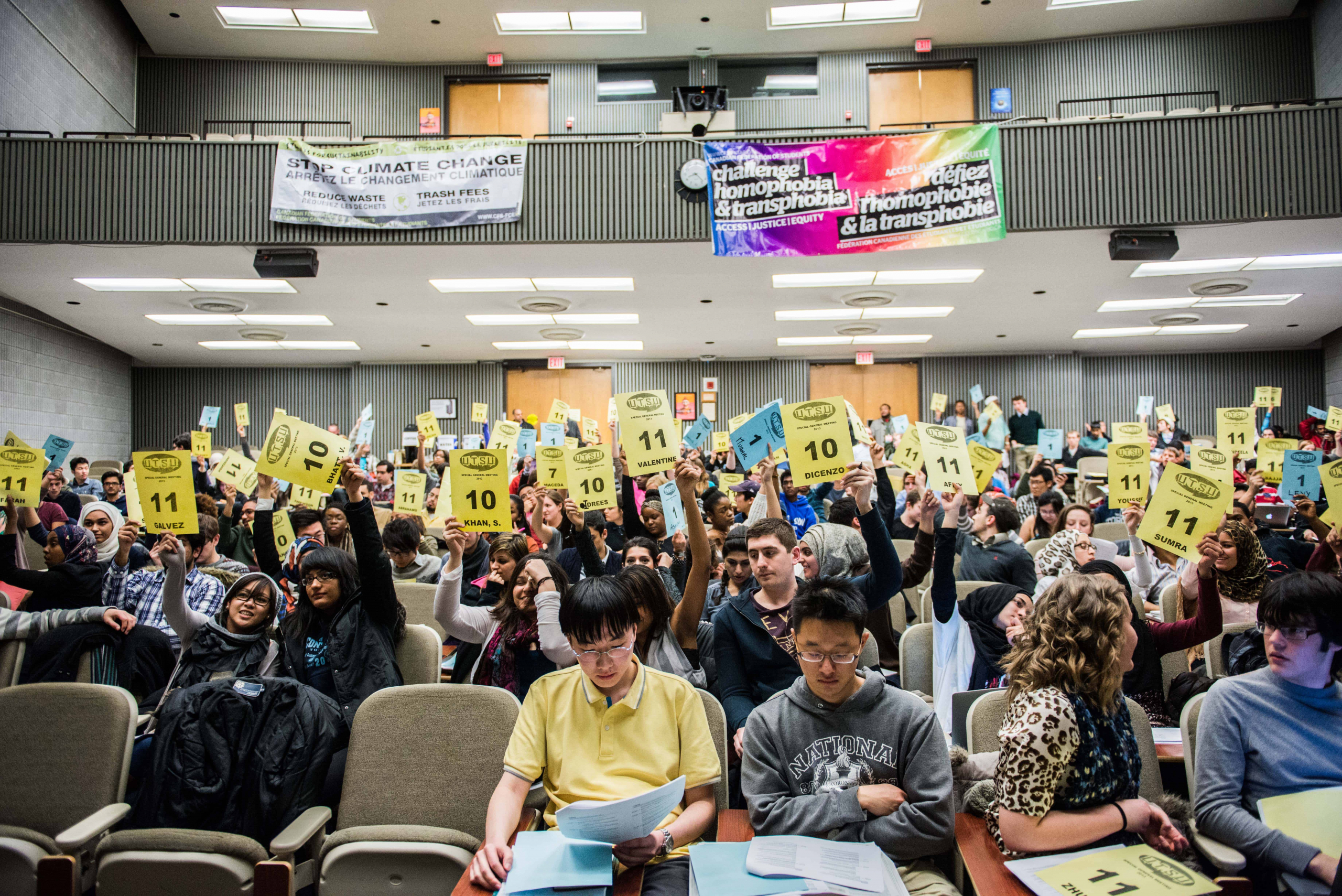Many were shocked and some disappointed Wednesday morning that the UTSU Special General Meeting (SGM) lost quorum just as a motion on electoral reform was going to a vote. I was concerned from the start of the meeting that we would fail to get through the agenda. On several occasions, I personally called the question — moved to force a vote — on uncontroversial motions. My efforts sped up some motions, but were ultimately unsuccessful. I called for quorum at around 10 pm, when the Mississauga students left to catch their bus.
Critics accuse UTSU execs and their allies of filibustering the meeting in order to avoid discussing electoral reform — the sixteenth motion on the agenda. These accusations are not accurate. In reality, the meeting failed to get through its agenda due to a confluence of obstacles. Last Tuesday’s meeting was not all bad. Our exercise in direct democracy saw 15 motions debated and voted on. Looking forward, we need to hammer out a compromise on electoral reform at this week’s meeting and build on last Tuesday night’s successes in future meetings.
With 20 motions plus old business to get through in just three hours, the SGM was on shaky ground from the start. Starting 30 minutes late because we could not achieve quorum until 6.30 pm did not help matters. Two motions were proposed to fix this problem: one to limit speakers and speaking time, the other to move electoral reform to the beginning of the meeting. Both motions were voted down, by different segments of the room.
Unnecessary vote counts and procedural arguments further delayed the meeting. Procedurally, members raise their voting cards to signal their preference during a vote, and the chair can decide to call the result without counting in cases where the result seems clear. If anyone challenges the chair’s decision, a count is held, which is a lengthy process in a meeting of this size. Several times during the meeting, counts were called for when the result was clear. At no point did the chair’s judgment prove to be incorrect. Furthermore, at more than one point in the evening, members got into procedural quibbles with the chair. On one occasion the chair was forced to produce Robert’s Rules of Order and ended up quoting from it extensively.
The late start, combined with a variety of delays and an ambitiously large agenda prevented the SGM from attending to all of its business. These factors were not the product of one individual or group’s efforts. If there had been a serious effort to filibuster electoral reform, those opposed to it would have walked out at 9 pm — the scheduled end of the meeting. Instead they stayed until 10 pm when the Mississauga students had to leave to catch their bus. Electoral reform would have reached a vote if people had been less quarrelsome over vote counts, procedure, and the exact method to expedite the meeting.
On a more positive note, a wide array of students — not just UTSU execs and college council leaders — tabled a swath of interesting and productive motions. Some were voted down, but many passed and deservedly so. Some of the motions could have been more clearly worded and more carefully constructed. A longer preparation period will hopefully address this in the future, perhaps with an online forum to share and offer advice on draft motions. Discussion was limited by time constraints, but was insightful and informative at points. In order to keep future meetings productive, all those in attendance will have to keep in mind the importance of a well-paced meeting when making procedural motions or calling for vote counts. To build on the SGM’s successes, next year UTSU could host one or more General Members Meetings (GMM) in addition to the Annual General Meeting. The GMM(s) would focus on providing a forum to propose and debate member-driven initiatives.
Electoral reform could have been dealt with. We have another shot at this on Tuesday. Both sides of the debate have to understand that the resolution will not be ideal from each of their perspectives. I urge people to compromise on a motion that is satisfactory to both sides. Despite its problems, the SGM accomplished a lot of good things. It was a messy but invigorating exercise in direct democracy.
Denys Robinson studies philosophy.


